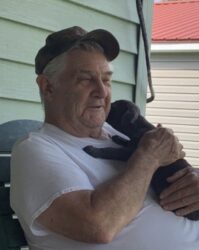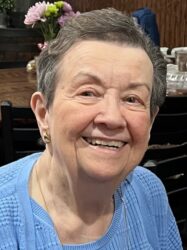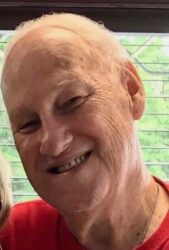
Pennsylvania – It’s that time of year again – a time to look over the past 12 months and make resolutions for how to do it better in the new year.
Along with hitting the gym more often and starting a diet, quitting smoking tops many New Year’s resolution lists. Quitting isn’t easy but 50 million ex-smokers in the United States are proof that it’s achievable, especially with proven-effective support from the American Lung Association.
Make 2018 the year you begin a new, smokefree life!
The American Lung Association in Pennsylvania has a few tips for the 1.7 million current smokers in the commonwealth who may be looking to quit smoking this year:
It’s never too late to quit. While it’s best to quit smoking as early as possible, quitting smoking at any age will enhance the length and quality of your life. You’ll also save money and avoid the hassle of going outside in the cold to smoke. You can even inspire those around you to quit smoking!
Learn from past experiences. Most smokers have tried to quit before and sometimes people get discouraged thinking about previous attempts. Instead, treat those experiences as steps on the road to future success. Think about what helped you during those tries and what you’ll do differently in your next quit attempt.
You don’t have to quit alone. The first 7 to 10 days of a quit attempt are the toughest, and telling friends and family that you’re trying to quit and enlisting their support will help ease the process. Friends who also smoke may even join you in trying to quit.
Talk to a doctor about quit smoking medications. Talking to a doctor can double your chances of quitting successfully. There are seven FDA-approved quit smoking medications that can help you quit. Just make sure to follow the directions and use them for the full duration they are prescribed.
Every smoker can quit. Find the right combination of techniques for you and above all, keep trying. Slip-ups – having a puff, or smoking one or two cigarettes – are common but don’t mean that a quitter has failed. The important thing is to keep trying to quit.
The American Lung Association’s Freedom From Smoking® helps individuals create their own unique quit plan, as well as tips and techniques to stay successful in the long run. Freedom From Smoking can be accessed online, at a group clinic and through a self-guided workbook. Those looking to quit smoking are encouraged to use the method that works best for their learning style, schedule and unique quit smoking plan. Ranked as the most effective smoking cessation program in a study of 100 managed care organizations conducted by Fordham University Graduate School of Business, Freedom From Smoking has helped hundreds of thousands participants quit smoking.
“Through Freedom From Smoking, I had the encouragement and support of a whole movement behind me, a movement that helped break the hold cigarettes had on me,” said Tom Rooney of Fairfield, Pa., successfully smokefree now for 6 years thanks to the Freedom From Smoking. “Step by step and day by day, the program was easy to follow and I was able to go at my own pace. The relaxation exercises and the personal attention of quit smoking counselors made me what I am today: smokefree!”
For more information about quitting smoking and how to access Freedom From Smoking, visit the American Lung Association website at Lung.org/ffs or call the free Lung HelpLine at 1-800-LUNGUSA (1-800-586-4872).
About the American Lung Association in Pennsylvania
The American Lung Association in Pennsylvania is the leading organization working to save lives by improving lung health and preventing lung disease, through research, education and advocacy. The work of the American Lung Association in Pennsylvania is focused on four strategic imperatives: to defeat lung cancer; to improve the air we breathe; to reduce the burden of lung disease on individuals and their families; and to eliminate tobacco use and tobacco-related diseases. For more information about the American Lung Association in Pennsylvania, a holder of the Better Business Bureau Wise Giving Guide Seal, or to support the work it does, call 1-800-LUNGUSA (1-800-586-4872) or visit: Lung.org.









